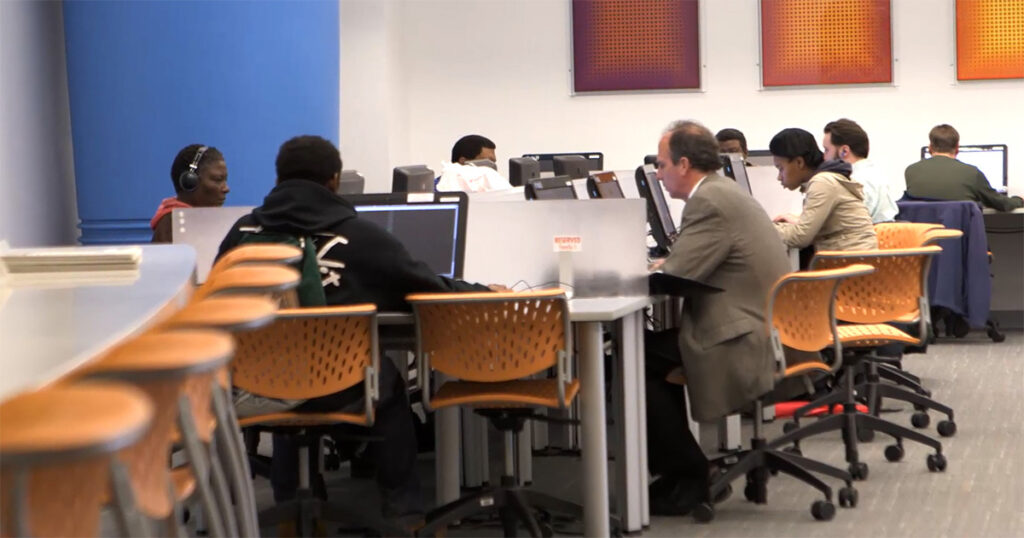LIBRARIES PROVIDE ACCESS

In a world where opportunity is tied to access—to technology, education, and essential resources—libraries remain one of the last great equalizers. Whether it’s WiFi for job seekers, computers for students, or bookmobiles reaching rural communities, libraries ensure that everyone, no matter their income or background, has the tools they need to learn, connect, and thrive.
BY THE NUMBERS
NEARLY HALF
of public libraries offer hotspots for checkout.
95%
of public libraries offer some kind of formal or informal digital literacy training.
95%
of public libraries offer e-books and/or e-audiobooks for patrons.
BRIDGING THE DIGITAL DIVIDE
For millions, lack of internet access is a daily barrier to success—whether for job applications, school assignments, or telehealth appointments. Libraries help close this gap by offering:
- Free High-Speed WiFi – Available inside and outside library buildings, including parking lots.
- Public Computers & Printing – Essential for job seekers, students, and those without home internet.
- Digital Literacy Training – Classes on computer basics, online safety, and job skills.
For those without home internet, the library isn’t a convenience—it’s a lifeline. When the COVID-19 pandemic hit, millions of
Americans found themselves cut off from school, work, and healthcare due to lack of internet or digital devices. Libraries responded quickly and innovatively to support their communities by expanding outdoor and parking lot WiFi, loaning out laptops and internet hotspots, and creating online storytimes and literacy programs so kids and adults could keep learning, no matter the circumstances. Even as the crisis eased, these services remain essential. Libraries didn’t just step up in an emergency—they continue to bridge the access gap every day.
Keeping our communities connected takes time and resources that may be out of reach for some libraries, and the American Library Association is helping libraries help their patrons in rural areas. In 2023, in partnership with Capital One Bank, ALA launched Community Connect: Fostering Digital Access, an initiative that provides rural public libraries with resources and support to assist patrons in establishing and sustaining affordable and high-speed home internet connections. Participating libraries received Verizon WiFi hotspots to lend to patrons, professional development resources for library staff to help patrons establish home internet connections, and $2,000 stipends to cover costs with implementing the program.

FROM THE FIELD
Rising rents and the end of pandemic-era eviction protections have led to a surge in eviction filings, with Cleveland seeing more than 18,200 cases since mid-2020. To help address this crisis, Cleveland Public Library (CPL) partnered with Cleveland Housing Court to open four Neighborhood Housing Court kiosks in library branches. These videoconferencing kiosks provide a more accessible option for residents who need to attend hearings but face barriers such as transportation or work schedules.
By strategically placing kiosks in high-eviction areas, CPL is removing obstacles to justice and ensuring that more residents can meet their court dates. Since their launch, dozens of users have accessed the kiosks, reinforcing the library’s role as a vital community resource.
FOR OUR LIBRARIES
Libraries are connecting our communities and providing access to information for all, and we can do our part to help them reach everyone: the child without internet, the job seeker without a computer, the homebound senior. The American Library Association provides training and funding opportunities for libraries and library workers across the U.S., but we need your help. When you become a supporter of the ALA, you help fund our efforts to advocate for library funding, improve the skills of library workers, and improve our communities.
